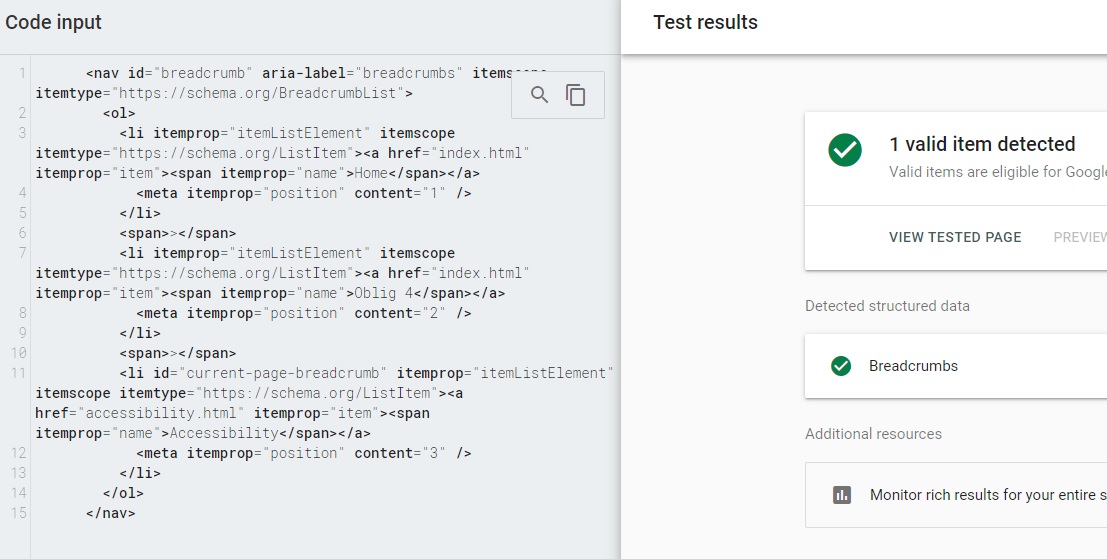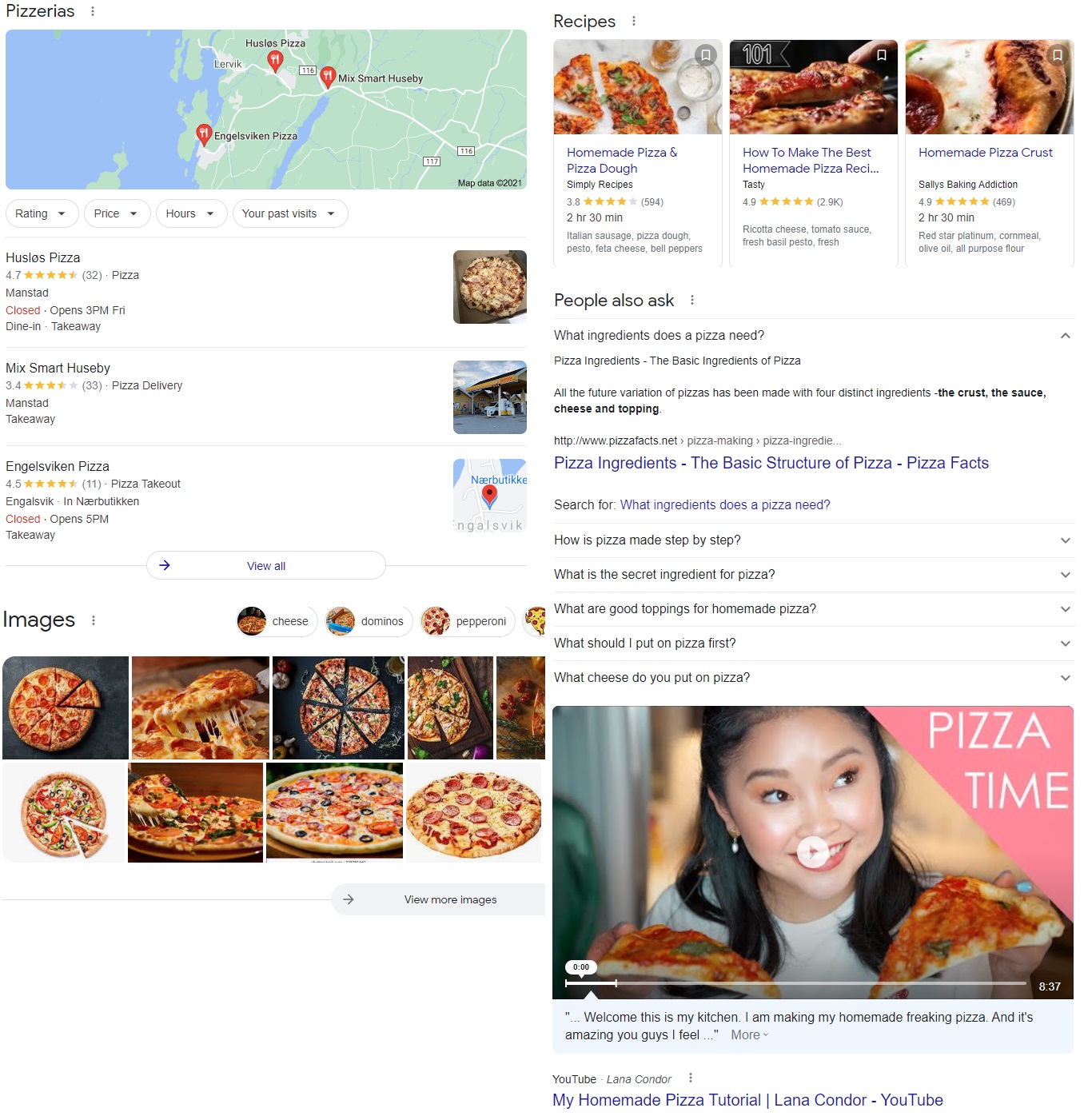Microdata
Microdata allows search engines to give a more accurate, relevant, and overall improved user experience. By implementing microdata (or other forms of structured data markup such as JSON-LD) we can further clarify what exactly sections of our web page is comprised of. Since everyone's code is different, search engines sometimes have problems with interpreting data, and by marking a breadcrumb list as such (instead of an additional navigation bar, for example), we can give additional information to the likes of Google and co.
Click here to see more examples of microdataWeb pages that are more specialised such as sites containing recipes and how-to tutorials may wish to make use of structured data to appear on a wider variety of search results. If someone, for example, searched 'pizza'. How should a search engine interpret this? That person may wish to order pizza (in which case, rich results could display local pizza restaurants), or maybe they are interested in making it themselves (a recipe site would be more useful in this case). The search could also be interpreted as somoene who merely wanted to know about the history of pizza, or what pizza is. Rich results making use of structured data can supply a variety of information on the same search result, thus encompassing a wide variety of results about such a vague search.
Examples of Rich Results and Microdata


